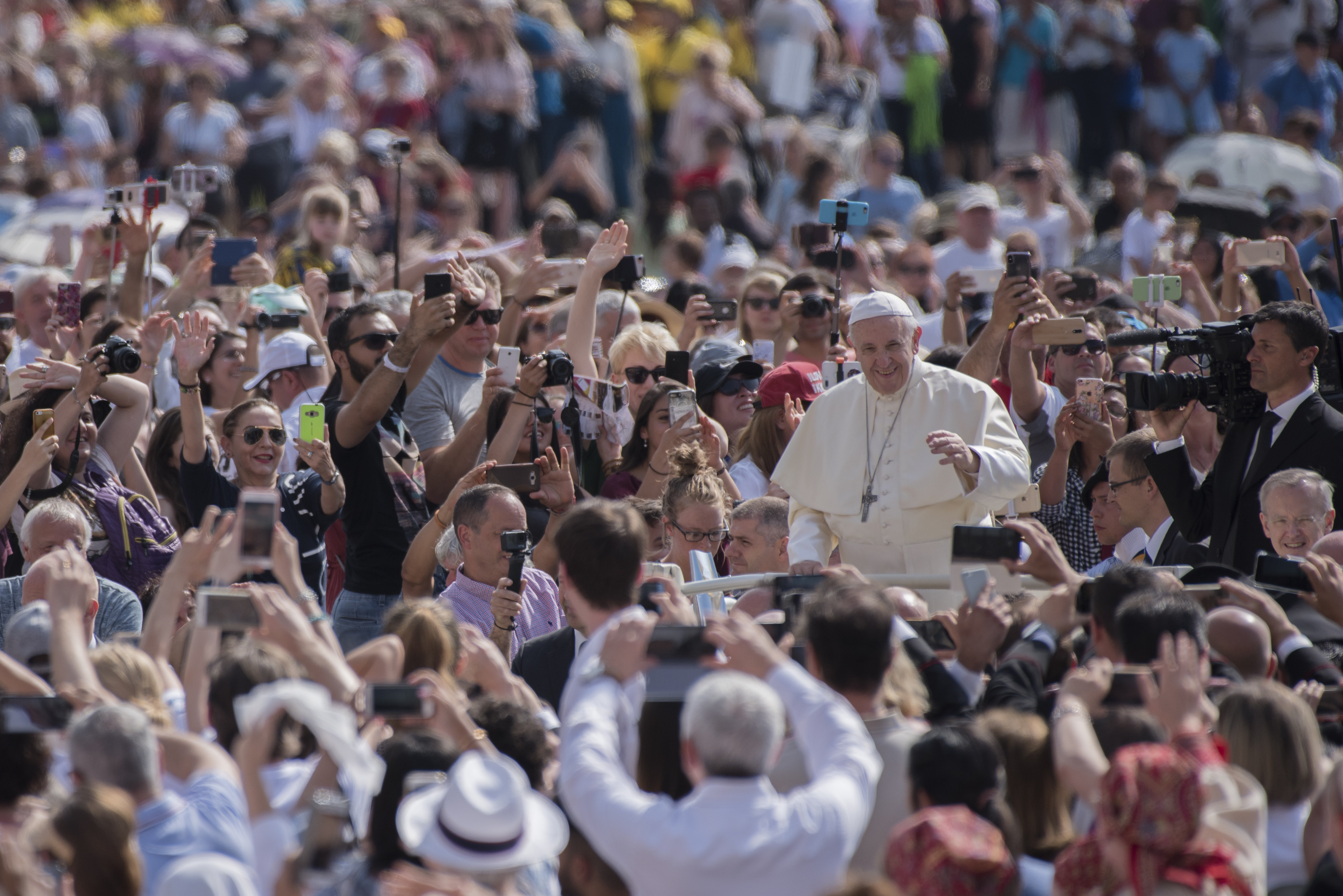Bishops ask what Francis meant by ‘unanimous’
After German bishops were asked by the Pope to find as much unanimity as possible in their dispute over whether non-Catholic spouses of Catholics should be able to receive communion, disagreement is now turning on what Francis might have meant by his instruction.
The German translation of the original Italian word for “unanimous” – and the translation into German of the 1998 Pope John Paul II motu proprio Apostolos suos, that said bishops’ conference decisions must be unanimous to be implemented – have all introduced new elements of confusion.
At the bishops’ conference plenary in February, a handout in favour of allowing mixed marriage couples to receive the Catholic Eucharist in individual cases was passed with a two-thirds majority.
One month later, however, seven bishops, including Cardinal Rainer Maria Woelki of Cologne, asked Rome for clarification as to whether the issue of intercommunion fell within the competence of a local bishops’ conference.
A delegation of bishops was invited to Rome to discuss the issue with the Pope and Prefect of the Congregation for the Doctrine of the Faith, Archbishop Luis Ladaria. Francis sent the bishops home with a request to find as “unanimous as possible” a solution.
The Vatican bulletin describing the talks, which were conducted in German, has only been published in Italian and German to date. In the Italian version, the Pope asked the bishops to find “un risultato possibilmente unanime”, in other words “as unanimous as possible a result”. In the German version, the Pope asked the bishops to find “eine möglichst einmütige Lösung”.
The German word for “unanimous”, however, is “einstimmig”, while “einmütig” has a more spiritual connotation and could be translated as, “with one heart”.
“The Pope expects us to achieve as ‘einmütig’ a solution as possible. Now what that certainly does not mean is unanimity,” Bishop Peter Kohlgraf of Mainz told the Kölnerstadtanzeiger on 12 May.
He added: “If I have understood the Pope correctly, then he means ‘As the truth is not a matter of black or white, or of yes or no, you can go ahead because the majority of you have decided.’”
Writing about the controversy in the German Tagespost daily on 23 May, Fr Christoph Ohly, who teaches canon law at the University of Trier, highlighted an important distinction between the two key German words. “‘Einstimmigkeit’ (unanimity) and ‘Einmütigkeit’ (with one heart) were two different concepts,” he said. “While ‘unanimity’ describes a clear legal category, ‘with one heart’ has a more spiritual dimension, which is difficult to determine in legal terms. One would have to clarify which concept the Pope used in this context.”
“Unfortunately,” Fr Ohly continued, the German translation of the Latin text of Pope John Paul II’s motu proprio Apostolos suos, on “the complementary norms regarding the conferences”, was not correct. The Latin text in Apostolos suos IV, Article 1, “ab omnibus Episcopis Conferentiae membris comprobentur”, was translated as “von den bischöflichen Mitgliedern einmütig gebilligt”. However, the correct translation of the Latin, in English, is, “they must be unanimously approved by the bishops”. The word “einstimmig”, having the consent of all with no dissent, should have been used rather than “einmütig”, Fr Ohly underlined.
The divisions between the bishops have extended to The Netherlands, where two bishops have distanced themselves from Cardinal Willem Eijk’s criticism of the Pope. Cardinal Eijk, Archbishop of Utrecht, accused Francis of causing confusion by reserving judgement on the appeal of the seven German bishops opposed to the planned reform.
Francis should have said clearly that canon law allows intercommunion only in emergencies, and no bishops’ conference can decide otherwise, he wrote.
But Bishop Gerard de Korte of ‘s-Hertogenbosch wrote on his diocesan website: “Isn’t it better to talk about a papal willingness for permanent dialogue?” Jan Hendriks, Auxiliary Bishop of the Haarlem-Amsterdam diocese, wrote that a bishops’ conference clearly has the authority to allow non-Catholics to receive communion under certain circumstances.


 Loading ...
Loading ...